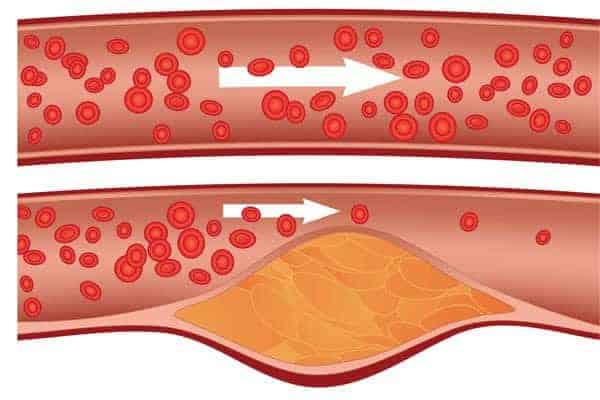Why Fasting Is the New Hack for Mental Clarity
In recent years, fasting has skyrocketed in popularity—not just as a dietary trend, but as a powerful tool for enhancing mental performance. While many have relied on caffeine or brain-boosting supplements to power through busy days, a growing number are turning to this ancient practice for a modern edge. Surprising as it may seem, research now links fasting to improved focus, heightened creativity, and remarkable mental clarity. As science uncovers the brain-boosting benefits of fasting, more people are exploring it as a sustainable and effective way to unlock their full cognitive potential.
1. Reduced Brain Fog

Anyone who’s felt sluggish after a large meal knows how digestion can cloud the mind. During fasting, however, many people report a notable boost in mental clarity. As the digestive system rests, energy is freed up for the brain, often resulting in thoughts that feel sharper and more organized. Both anecdotal accounts and emerging scientific studies suggest that fasting helps clear away mental fog, making it easier to focus and process information efficiently.
2. Enhanced Focus and Concentration

Many who practice fasting notice a heightened ability to focus for extended periods. Without the distraction of constant hunger cues or the sluggishness that follows a heavy meal, it becomes easier to dive into demanding tasks. Some even compare the state of alertness experienced during fasting to the calm clarity found in meditation or mindfulness. This natural boost helps extend productive sessions of deep work, study, or creative problem solving.
3. Increased Production of Brain-Derived Neurotrophic Factor (BDNF)

Fasting has been shown to boost the production of brain-derived neurotrophic factor (BDNF), a protein essential for learning, memory, and overall brain vitality. Think of BDNF as a natural fertilizer that nourishes the brain’s neural pathways, fostering growth and resilience. Higher levels of BDNF are linked to improved mental performance and a stronger defense against cognitive decline. This powerful effect helps explain why many experience sharper thinking and mental rejuvenation while fasting.
4. Improved Mood and Emotional Balance

Fasting often brings about a sense of emotional stability that many find surprising. Unlike the emotional rollercoaster caused by high-sugar diets—marked by spikes and crashes—fasting tends to promote a steadier, more positive mood. Research suggests that fasting can help regulate key neurotransmitters like serotonin and dopamine, both essential for mood and motivation. As a result, people frequently report fewer mood swings and a calmer, more balanced emotional state during fasting periods.
5. Sharper Memory Recall

Research indicates that fasting may enhance memory retrieval, making it easier to access information quickly and accurately. Students and professionals alike often notice their recall abilities are heightened during fasting windows, an effect linked to increased synaptic plasticity in the brain. This means the brain’s connections become more adaptable, helping details surface with less effort. Such benefits make fasting an appealing option for anyone seeking to improve learning or excel in high-pressure environments.
6. Boosted Creativity

Fasting doesn’t just sharpen focus—it can also unlock creative thinking. By encouraging the brain to form new neural connections, fasting may open the door to fresh ideas and novel solutions. Many artists, writers, and innovators describe having creative breakthroughs during fasting periods, often comparing the sensation to the mental clarity felt during a peaceful morning or after a refreshing walk in nature. This heightened creativity makes fasting a valuable tool for anyone seeking inspiration or innovative thinking.
7. Heightened Sensory Awareness

During fasting, many people notice a sharpening of their senses. Colors often appear more vivid and sounds become clearer, almost as if the world is coming into sharper focus. This experience is similar to the heightened awareness cultivated through mindfulness practices. Without the distraction of constant eating, the mind becomes more present, amplifying sensory perception. This increased awareness can enrich both personal moments and professional interactions, making experiences feel more profound and memorable.
8. Reduced Anxiety and Stress

Fasting may help to lower anxiety and stress by reducing inflammation and keeping blood sugar levels steady. Many individuals report feeling a calmer, more centered mindset during fasting windows. This tranquility is often likened to the psychological effects of meditation or light exercise, both known for their stress-relieving properties. As the body adapts, the mind follows, making it easier to navigate daily challenges with a sense of balance and resilience.
9. Enhanced Sleep Quality

Fasting, especially when it includes avoiding late-night meals, can help regulate natural sleep patterns. Many find they fall asleep more easily and enjoy deeper, more restorative rest when their digestive system isn’t working overtime at night. The result is waking up with sharper mental clarity and improved mood—much like the difference between a restful night and a restless one. This simple shift can powerfully impact both cognitive function and overall well-being.
10. Lowered Inflammation in the Brain

Scientific studies suggest that fasting can reduce neuroinflammation, a key factor in mental sluggishness and cognitive decline. This benefit mirrors results seen with anti-inflammatory diets, but is achieved simply by adjusting when you eat rather than what you eat. By lowering inflammation in the brain, fasting supports clearer thinking and protects long-term cognitive function. It’s a straightforward way to promote brain health, making every thought feel a bit quicker and more precise.
11. Increased Energy for Mental Tasks

Contrary to what some might expect, fasting often leads to greater mental energy and agility. As the body shifts from burning carbohydrates to utilizing fat for fuel, energy levels remain steady—without the spikes and crashes of carb-heavy meals. This sustained energy supports long periods of concentration, problem-solving, and creativity. Many find they can tackle challenging mental tasks with more stamina and less fatigue, making fasting a reliable ally for productive days.
12. Promotion of Autophagy and Brain Detoxification

Fasting activates autophagy, the body’s natural cellular cleanup process. During autophagy, damaged cells and toxins are removed, including those in the brain, promoting overall neural health. This process is often likened to a spring cleaning for your neural pathways, clearing out clutter and waste that could hinder mental performance. As a result, many notice clearer thinking and enhanced cognitive resilience, making fasting a powerful routine for brain maintenance.
Conclusion

Fasting is rapidly gaining recognition as a comprehensive tool for mental clarity, impacting everything from memory and mood to creativity and sustained energy. As we’ve explored, its benefits extend far beyond simple dietary changes—offering a holistic strategy for enhanced cognitive wellness. While individual experiences may vary, the science and stories behind fasting make it well worth considering for anyone seeking a mental edge. Why not explore fasting as your own secret weapon for sharper thinking and greater well-being?
.article-content-img img { width: 100% }




